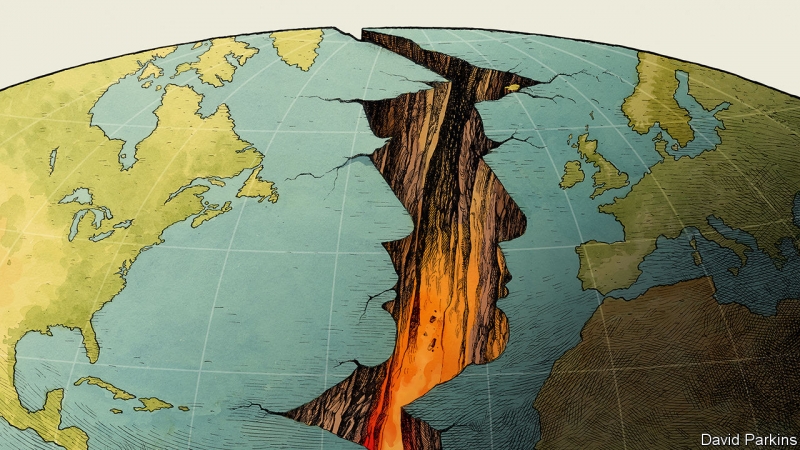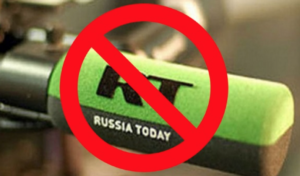
The Economist
President Donald Trump departs Tuesday on a four-nation tour amid simmering disputes over trade and military spending with fellow Western democracies and speculation about whether he will rebuke or embrace Russian President Vladimir Putin, the Washington Post reports. Trump on Monday lashed out at US allies, two days before he heads to Brussels for the NATO summit.
 Putin needs more from the United States and the West than we need from him, argues Victoria Nuland (right), a 32-year veteran of the United States Foreign Service, and chief executive of the Center for a New America Security.
Putin needs more from the United States and the West than we need from him, argues Victoria Nuland (right), a 32-year veteran of the United States Foreign Service, and chief executive of the Center for a New America Security.
Putin survives on a governance model that requires $60-per-barrel oil, total political control of his citizenry and a kleptocratic stranglehold on the economy, she writes for the New York Times:
A population that he once intoxicated with military deployments in Crimea and Syria now cares most about improvements in Russia’s hospitals, according to recent polls. And after four years of those costly deployments, along with sanctions and low-to-zero growth, Mr. Putin’s government is broke. He has run through half of the sovereign wealth Russia saved in the oil boom of his first two terms as president, starting in 2000; the cost of living has increased for most Russians by 15 percent or more; and last week, the Russian Duma had to raise value-added taxes and the pension age to increase revenue.
The reform Russia needs is impossible without more power-sharing than Putin will allow, adds Nuland, a board member of the National Endowment for Democracy.
 The Brussels Summit comes at a time when NATO and many of its member states are under attack, facing an assault not on their territory but on the democratic institutions that are the foundation of the Alliance itself, notes the German Marshall Fund’s Laura Rosenberger.
The Brussels Summit comes at a time when NATO and many of its member states are under attack, facing an assault not on their territory but on the democratic institutions that are the foundation of the Alliance itself, notes the German Marshall Fund’s Laura Rosenberger.
“The attacks that have been witnessed exploit the internal vulnerabilities of our societies, and in some cases illiberal forces within NATO member states contribute as much if not more than external threats to the erosion of democracy,” she adds. “The fact that President Trump will meet with President Putin, and the uncertainty about whether he will even raise Russia’s use of diverse tools to attack the Alliance’s democracies on this occasion, only complicate the dynamics of this issue.”
Transatlantic rift

Institute of Modern Russia
The Western alliance is in trouble, the Economist observes. America’s alliances are an asset that are the envy of Russia and China. NATO is an inheritance that is all the more precious for being irreplaceable, it adds:
The need for security remains. Russia is not the Soviet Union but, as a declining power, it feels threatened. It has modernized its forces and is prepared to deploy them. The need to anchor European democracy remains, too. As authoritarianism creeps up on Poland and Hungary, the EU and NATO can once again help limit its advance. And there is the extra benefit of how Europe helps America project power, by providing bases, troops and, usually, diplomatic support.
 Born after World War II, NATO linked America and Europe not just in a mutual defense pledge but in advancing democratic governance, the rule of law, civil and human rights, and an increasingly open international economy, the New York Times observes. The alliance was the core of an American-led liberal world order that extended to Asia and relied on a web of international institutions, including the United Nations and the World Bank.
Born after World War II, NATO linked America and Europe not just in a mutual defense pledge but in advancing democratic governance, the rule of law, civil and human rights, and an increasingly open international economy, the New York Times observes. The alliance was the core of an American-led liberal world order that extended to Asia and relied on a web of international institutions, including the United Nations and the World Bank.
Some observers are concerned that the Trump-Putin summit could signal a re-orientation of US foreign policy.
The top Democrat on the House Armed Services Committee,  Rep. Adam Smith, D-Wash., said this week that he was troubled by apparent efforts “to reorient U.S. foreign policy towards Russia and away from our democratic allies in Europe.”
Rep. Adam Smith, D-Wash., said this week that he was troubled by apparent efforts “to reorient U.S. foreign policy towards Russia and away from our democratic allies in Europe.”
He opposed any moves that entailed “lining us up with an authoritarian dictator instead of with democracies that promote economic and political freedom,” Smith said. “I don’t think that’s what the United States should stand for.
NATO is also going to have to decide what to do with Turkey and the other countries that are eroding the fabric of the alliance by repudiating democratic principles, the Times adds.







